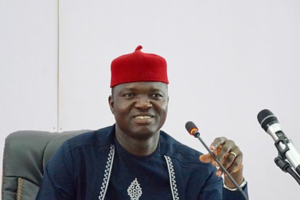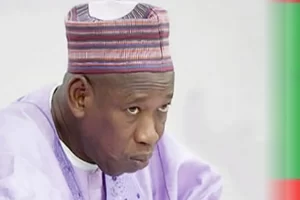Ugo Aliogo examines the impact of domestic violence on the society, and the failure of policies and legislations to address the menace
Cases of domestic violence in Nigeria have taken an upward swing in recent weeks, especially with the death of late gospel artiste, Osinachi Nwachukwu, which went viral and attracted much media attention. It was alleged that Nwachukwu died from domestic violence and not throat cancer as widely claimed. Whether this revelation is true or not, domestic violence has remained a recurring decimal not just in Nigeria society, but globally. However the efforts to curb the menace through policies, laws and penalties differ from society to society.
It is important to state that women do not only experience domestic violence, Men are also victims. There was a time in Nigeria were wives were killing their husbands, but it didn’t receive much media attention because the societal configuration makes possible for men to always be on the wrong side of the law always.
The United Nations defines violence against women as “any act of gender-based violence that results in, or is likely to result in, physical, sexual, or mental harm or suffering to women, including threats of such acts, coercion or arbitrary deprivation of liberty, whether occurring in public or private life.”
According to the World Health Organisation (WHO), violence against women, particularly intimate partner violence and sexual violence is a major public health problem and a violation of women’s human rights.
Estimates published by WHO indicate that globally, about one in three (33 percent) women worldwide have experienced either physical and or sexual intimate partner violence or non-partner sexual violence in their lifetime.
The estimates also indicate that almost one-third of women aged 15-49 years, who have been in a relationship, report that they have been subjected to some form of physical and/or sexual violence by their intimate partner.
Also, a report from Nigeria’s National Population Commission (NPC) estimates women’s lifetime exposure to IPV from their partner at 19 per cent for emotional IPV, 14 percent for physical IPV, and 5 percent for sexual IPV.
In 2021, the Lagos State Domestic and Sexual Violence Response Team (DSVRT) reported that it recorded 10,007 reported cases of domestic violence, including sexual abuse perpetrated against adults and children between May 2019 and August 26, 2021.
The breakdown of the cases shows that domestic violence ranked highest with a total of 4,150 cases. Five of the victims were said to have died.
Expert Opinion
In an interview with THISDAY, the Executive Director, Women in Management, Business and Public Service (WIMBIZ), Hansatu Adegbite, said domestic violence is not a case of parents who raise male children who don’t respect the girl-child as it can also be both ways.
She also argued that there are a lot of factors that are responsible for domestic violence in the nation which has made it an acceptable practice in some families, communities, cultures, traditions and religions, “personal traumas, childhood experiences and personality disorders are also a part of the reasons too.”
Corroborating the views raised by Adegbite was the argument made by the Women’s Rights Programme Manager, ActionAid Nigeria (AAN), Nkechi Kanny, who stated that domestic violence is a complex problem in Nigeria, “a common problem and people live with it as if it is a norm in society. Just like terrorism is a global threat to peaceful human co-existence and human rights because they both use violence and intimidation as means to achieve their goals.
She disclosed that women and children are the most vulnerable when it comes to issues of domestic violence and abuse, and analyses have shown that domestic violence in Nigeria may be directly or indirectly motivated by religious beliefs, existing cultural norms, perceptions that promote patriarchy, weak enforcement of laws that protect the rights of women and children, stigma, and the culture of silence.
She further explained that the patriarchal system in the country subjects women to violence and religion is used as a tool for correcting behaviour and exerting male dominance, especially in marriages as Churches, Mosques and Shrines play major roles in shaping the beliefs and perceptions of victims of domestic violence in the country.
According to her, “There are religious ideologies on women being inferior to men, the perception of women as ‘unclean’ and the portrayal of virtuous women as ‘submissive’. The frown on divorce by some religious groups makes it further difficult for victims to leave abusive marriages, all of which endorse domestic violence. The lack of discussion of domestic issues also creates a space in which ostensibly socially unacceptable behaviour becomes allowable and even commonplace. Because conversations about domestic violence are off-limits, many women do not share abuse incidents with anyone.
“Violence and male dominance have gradually developed into the way of life for many families, this is promoted by existing cultural norms and religious beliefs which have slowly been passed to male children who watch their parents perpetrate such abuse against their mothers and sisters without being persecuted by the society or its government.
“Public awareness about domestic violence and the punishment for perpetrators has not been fully actualized, most act of violence against women and children still go unpunished, rather society casualizes most of these actions and applaud the perpetrators in some cases. The government has failed to introduce subjects into the school curricular systems that directly discourage domestic violence stating the punishment for such actions and the society has subconsciously driven the idea that promotes female subordination and male supremacy/dominance that promotes domestic violence.”
Legislations and Policies
Adegbite posited that the issue is not the passing of legislation and policies, but their implementation with severe consequences, adding that in a country like Nigeria, paperwork needs implementation, sanctions and heavy consequences for them to be effective.
On her part, Kanny argued that domestic violence is a major problem and most states in Nigeria have risen to this challenge by putting in place legislation to champion the fight against domestic violence which includes policy formulations, planning, awareness, justice for victims and prosecution of persecutors through the concerted efforts of ministries, parastatals, and agencies.
The AAN Programme Manager hinted that the policies created have not been sufficient due to the corruption in the system, cultural and religious influences, weak public awareness systems, poor domestication of government policy, and lack of will by responsible agencies to persecute the perpetrators, “these are factors affecting the eradication of domestic violence.”
Her viewpoint is that while the introduction of these policies has been a laudable improvement in tackling the issue of domestic violence, there are still loopholes that need to be addressed in the fight against domestic violence, adding that the legal approach to combating domestic violence in Nigeria has been riddled with some irregularities.
Kanny, noted: “Even though some States do not have laws passed to tackle domestic violence, some have laws that are deficient for women and children. The level of protection and recourse offered to victims of domestic violence has also been a subject that needs improvement and most significantly, the reluctant attitude of relevant agencies responsible for taking necessary actions.”
Efforts of NGOs, CSOs
Kanny stated that over the years both local and international NGOs together with Civil Society Organizations have contributed immensely to ensuring the eradication of domestic violence in the country.
She stated that ActionAid International has responded to raising issues of Domestic Violence (DV) which resulted from the COVID-19 pandemic in 40 countries across Africa, Asia, the Americas, Europe and the Middle East.
According to her; “We have reached over 21 million people globally with our life-saving support: helping them access family planning services, providing them with skills and resources to earn their own income, holding perpetrators to account, ending the patriarchal power structures and harmful practices such as child marriage, delivering food supplies; distributing essentials like soap and water; protecting women’s rights by funding women’s shelters and combating the spread of misinformation with awareness-raising campaigns.
“Other organizations like Cleen Foundation, ACTS Generation, Crime Victims Foundation Nigeria (CRIVIFON), FIDA and Rayuwa Sexual Assault Referral Centre have been on a course in the fight against Domestic Violence and abuse. Advocacies and campaigns for policies that ensure the protection and prevention of domestic violence and all forms of abuse against women and children are just beginning to translate into action at state and federal levels. However, not enough has been done as we still have rising cases of domestic violence all over the nation and Africa at large.”
Government’s Commitment
Adegbite standpoint on government commitment to end domestic violence is that government has not been an avid implementer of treaties and policies in a manner that there are consequences to defaulting citizens.
She hinted that it takes 100 percent commitment to get things right, not 50 or 70 percent, noting that implementation with stringent consequences that have legal backing is necessary, “as citizens we also need to hold each other accountable as well as the government.”
The AAN Programme manager stated that issues of domestic violence, Gender-based violence (GBV) or violence against women and girls (VAWG), is a global pandemic that affects one in three women in their lifetime (According to World Bank).
She said Nigeria has done well by enacting the 2015 VAAP Act, but there is much more that could be done to show commitment by the government toward ending the menace.
“Enough of the talk, it is time to amend the VAAP act to contain areas that address the challenge of domestic violence and push for the domestication of this Act by all states in the country,” she added.
Solution
Kanny suggested that an attempt to put an end to the domestic violence and all forms of gender-based violence is not just the work of NGOs, CSOs and the Government but that of the society at large.
She added: “There are steps that we can be take to end all forms of abuse, and these include: busting up awareness campaigns, challenging demeaning or degrading references to women at individual, societal, religious and government levels, opposing the culture of victim-blaming, teaching boys a sense of masculinity that respects women and accepts no type of gender-based violence, providing protection for victims, incorporating call centres and helplines for all sexual and GBV related cases. The truth is, to end this problem begins with us as such we must never become accustomed to condoning any form of abuse or turn a blind eye to exploitation.”
On her part, Adegbite stated that there is need to have a lot of advocacy interventions with religious, cultural and traditional leaders to appeal to them on the cancerous effect of this practice in our society.
According to her, “There is a need for an effective communications strategy to sensitize the society on the effects of violence to ourselves and our community and how we can collectively overcome them. Implementation of policies with strict consequences for offenders have to be put in place as well as safe houses for Victims that are actually safe.”


















Add Comment